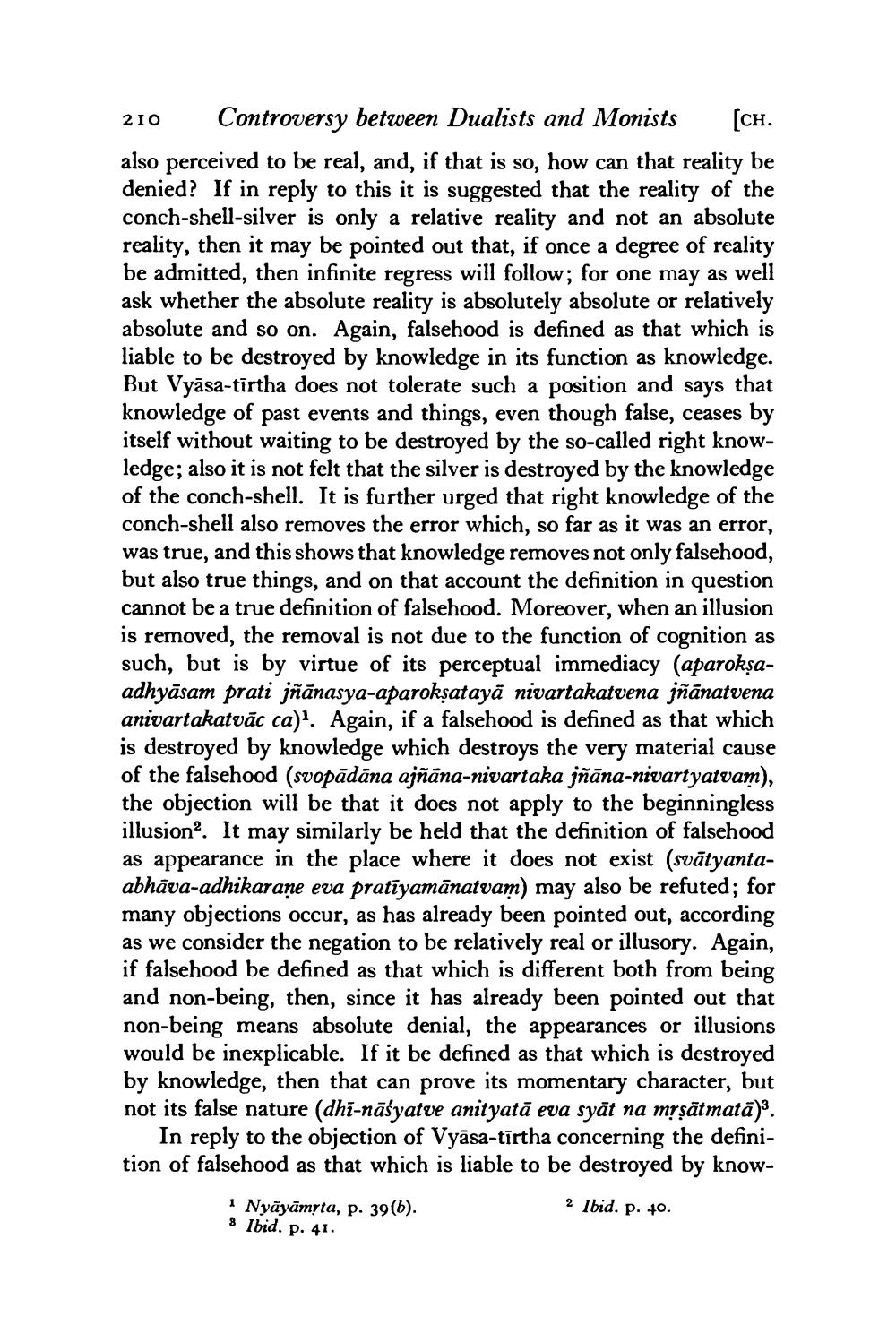________________
210 Controversy between Dualists and Monists [CH. also perceived to be real, and, if that is so, how can that reality be denied? If in reply to this it is suggested that the reality of the conch-shell-silver is only a relative reality and not an absolute reality, then it may be pointed out that, if once a degree of reality be admitted, then infinite regress will follow; for one may as well ask whether the absolute reality is absolutely absolute or relatively absolute and so on. Again, falsehood is defined as that which is liable to be destroyed by knowledge in its function as knowledge. But Vyāsa-tīrtha does not tolerate such a position and says that knowledge of past events and things, even though false, ceases by itself without waiting to be destroyed by the so-called right knowledge; also it is not felt that the silver is destroyed by the knowledge of the conch-shell. It is further urged that right knowledge of the conch-shell also removes the error which, so far as it was an error, was true, and this shows that knowledge removes not only falsehood, but also true things, and on that account the definition in question cannot be a true definition of falsehood. Moreover, when an illusion is removed, the removal is not due to the function of cognition as such, but is by virtue of its perceptual immediacy (aparokșaadhyāsam prati jñānasya-aparokşatayā nivartakatvena jñānatvena anivartakatvāc ca)". Again, if a falsehood is defined as that which is destroyed by knowledge which destroys the very material cause of the falsehood (svopādāna ajñāna-nivartaka jñāna-nivartyatvam), the objection will be that it does not apply to the beginningless illusion?. It may similarly be held that the definition of falsehood as appearance in the place where it does not exist (svātyantaabhāva-adhikarane eva pratīyamānatvam) may also be refuted; for many objections occur, as has already been pointed out, according as we consider the negation to be relatively real or illusory. Again, if falsehood be defined as that which is different both from being and non-being, then, since it has already been pointed out that non-being means absolute denial, the appearances or illusions would be inexplicable. If it be defined as that which is destroyed by knowledge, then that can prove its momentary character, but not its false nature (dhi-nāśyatve anityatā eva syāt na mrsātmatā).
In reply to the objection of Vyāsa-tīrtha concerning the definition of falsehood as that which is liable to be destroyed by know
2 Ibid. p. 40.
· Nyāyāmsta, p. 39(b). 8 Ibid. p. 41.




